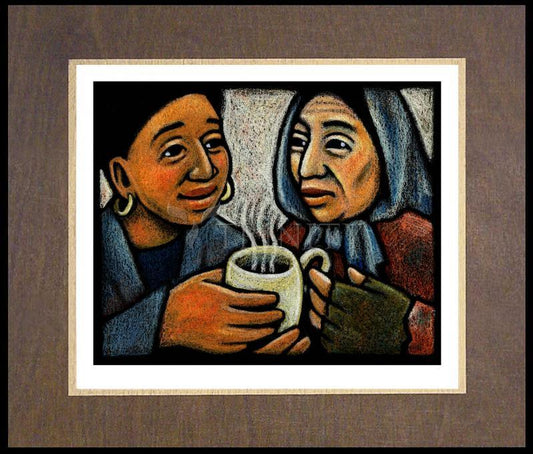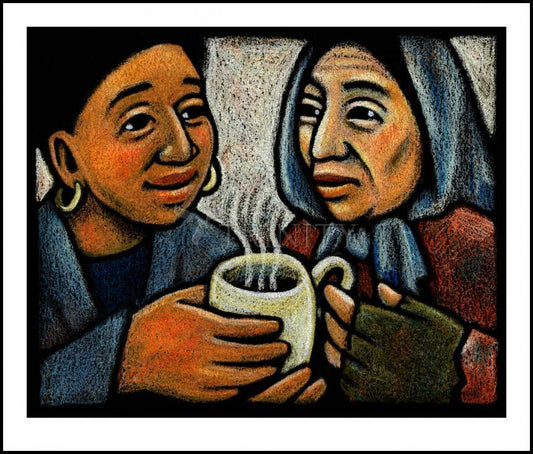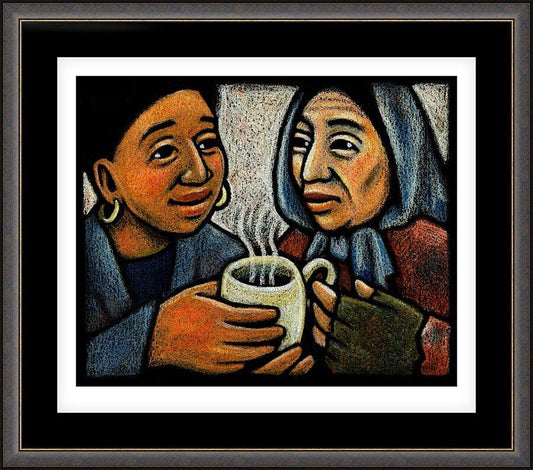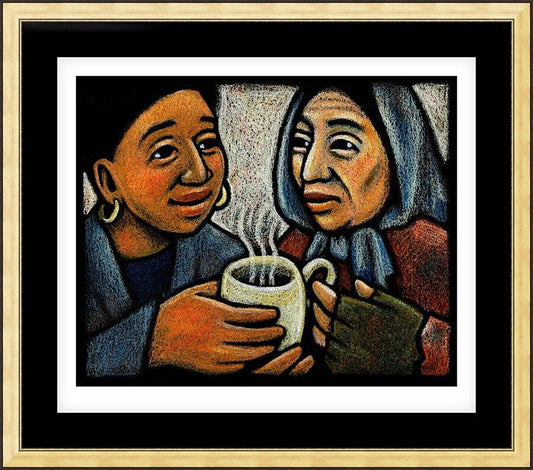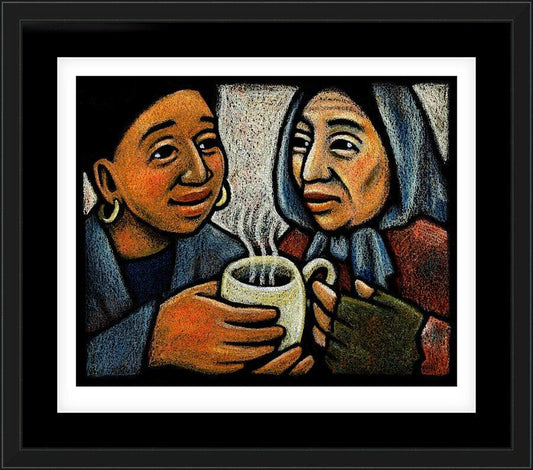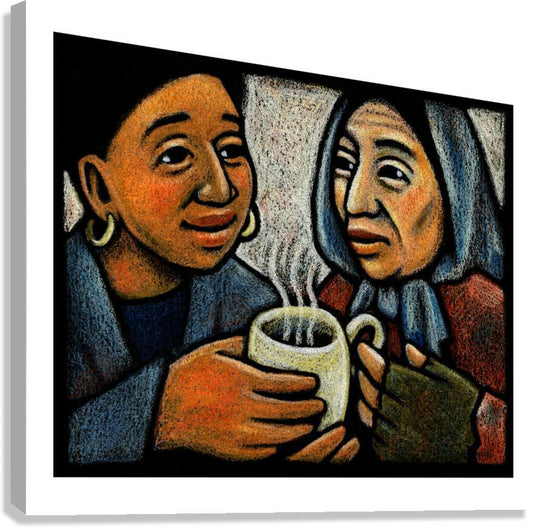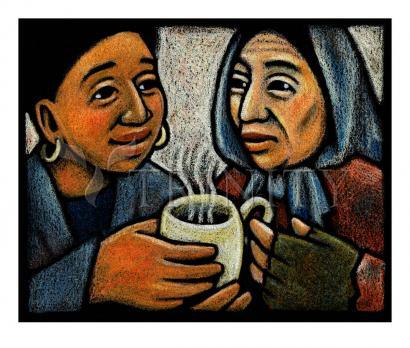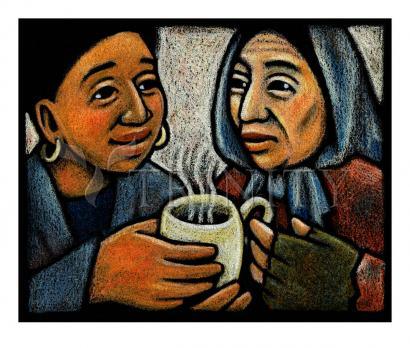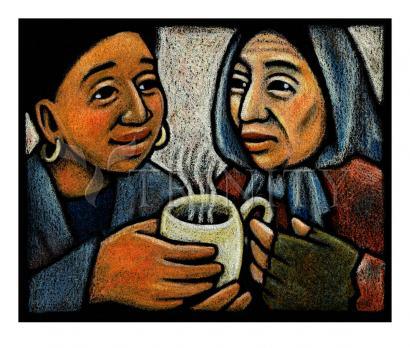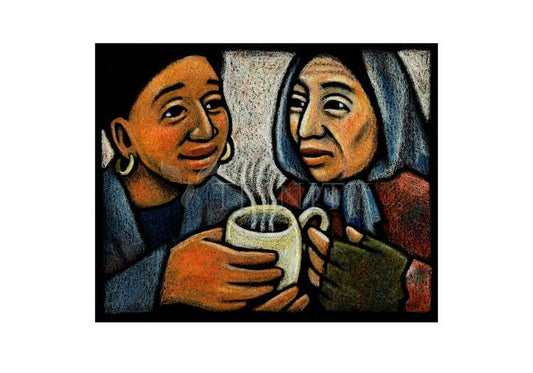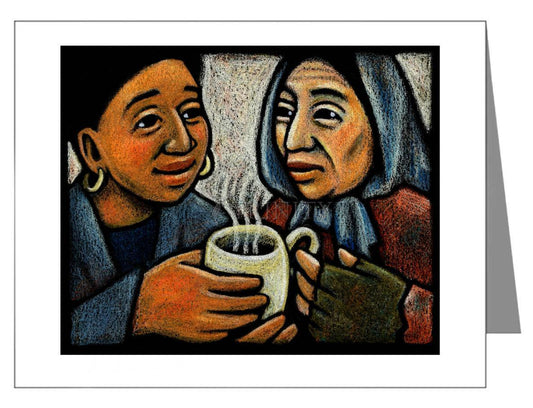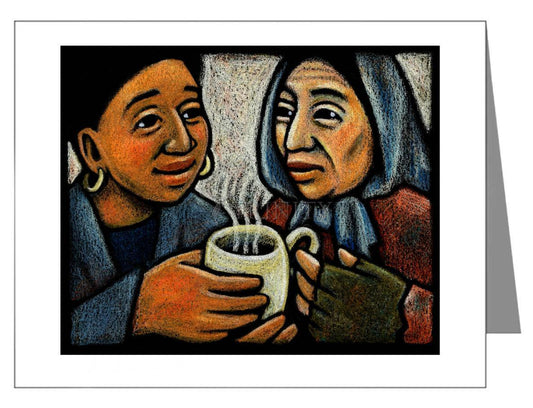In this Gospel, Matthew begins the beatitudes of Jesus' Sermon on the Mount with BLESSED ARE THE POOR IN SPIRIT FOR THEIRS IS THE KINGDOM OF HEAVEN. You may recall that Luke has a parallel version of this extended sermon, beginning with beatitudes that are similar but not exactly like Matthew. Rather than BLESSED ARE THE POOR IN SPIRIT FOR THEIRS IS THE KINGDOM OF HEAVEN, Luke's Jesus says, instead, BLESSED ARE THE POOR, FOR YOURS IS THE KINGDOM OF GOD.
Scholars debate which might have been the original Jesus, if either is. The texts differ in a significant way. Note that while Luke addresses THE POOR, Matthew speaks of THE POOR IN SPIRIT. A good case can surely be made for POOR since the Jesus message is essentially pitched to poor people -- the have-nots, disenfranchised, marginal, unacceptable, unwelcome people like maligned tax collectors and beggars and prostitutes and the broken in body and beaten down in spirit. When confronted with the absurd idea that the poor are blessed by God, or, as the word can also be translated, are to be envied, or are favored by God, Matthew with good reason might tweak it a bit. POOR IN SPIRIT has wider appeal and perhaps includes more of those in an emerging church who are no longer the destitute and denigrated poor of Jesus' time. POOR IN SPIRIT, more inclusive and universal, could obviously include people like us rather than simply the homeless on our streets, those destitute and out of work.
One thing that Matthew and Luke quite clearly both agree on in this beatitude, however, is that the Kingdom is of the moment. FOR THEIRS IS THE KINGDOM. FOR YOURS IS THE KINGDOM. The promise is not about later on someplace else. It is rather about here and now. The Vietnamese Buddhist monk Thich Nhat Hanh is fond of saying, "The Kingdom of God is now or never." The Kingdom, belonging to and including the poor, is now and not a pie-in-the-sky-in-the- great-bye-and-bye -- even though, or maybe even because, you are poor/poor in spirit.
Whether THE POOR or THE POOR IN SPIRIT, the message can yet speak to people like us two thousand years later. Jesus is saying that it is when the things we prize most get lost or broken or even violently torn from our grasp that we can experience or know or become something we cannot seem to find, or will ever be, when we are rich. He is not exhorting us to go out and become POOR or POOR IN SPIRIT, but simply saying that if we live long enough, all of us will experience a kind of poverty that will bless us and makes the Kingdom of God our possibility. It is the terrifying promise that when we lose our riches and poverty finally comes -- whether it be lost money or status or virtue or respect or confidence or health or security or job -- that the Kingdom of God will draw near. It's when hope gets broken and promises that are forever erode, that God's Kingdom becomes an option.
It is also talking about the times when people we cherish and love, revere and depend upon leave us -- when those whose energy, passion, wisdom and truth inspire, touch, enliven, gladden and gratify us, when those people are no longer here. The poverty truth is that most often it is only after they have left us by dying or departing in despair or abandoning us in anger that we are able, as never before, to discover what they never could be for us -- that is, the person you and I can only be and become without them.
All that is meant to be Gospel -- good news. And for many of us it is a good news we refuse to believe and resist daily. How much of our energy is spent on staying rich in order to avoid being poor? Bank rich, home wealthy, body healthy, secure, sane, and serene? We massage and measure our relationships to keep them open and fresh, honest and truthful, enduring and enlivening. The kingdom for me and most folks I know is on the side of riches and abundance, plenty and enough. On the other hand, Jesus seems to be saying here that God's kingdom arrives when thing come apart, unravel, and all our roads lead to less, poor, and knowing our poverty.
Anne Morrow Lindberg writes in her journal, Hours of Lead, Hours of Gold, about the days soon after the discovery of the dead body of her son Charles, who had been kidnapped from the Lindberg home: "What I am saying is not simply the old Puritan truism that 'suffering teaches.' I do not believe that sheer suffering teaches. If suffering alone taught, all the world would be wise. To suffering must be added mourning, understanding, patience, love, openness, and the willingness to remain vulnerable. If the circumstances are right, suffering can teach and can lead to rebirth." I hear Jesus saying the same thing in the beatitude about being poor.
To our poverty, like our suffering, must be added mourning, understanding, patience, love, openness, and the willingness to remain vulnerable. Ask yourself how well you add such things when your life is falling apart, when the fragile things get broken, when what matters most and gives meaning to your days is in jeopardy. What when you are poor do you know about mourning, staying open, and being willing to remain vulnerable -- rather than circling the wagons, putting up the walls, distancing, taking a trip, moving to another town, promising yourself to never trust again, getting out all the duct tape and glue to paste it all back to the way things were? It is so easy to believe that rebirth is achieved by never risking again. Closing down. As if the kingdom is not about being poor but about our determination, at all costs, to become rich again.
"To stay with that shakiness -- to stay with a broken heart, with a rumbling stomach, with the feeling of hopelessness and wanting to get revenge," writes Pema Chodron, "that is the true spiritual path of awakening." Jesus calls that the Kingdom of God.
Kenneth Fearing, the poet, describes the end of what has been a particularly long and wearisome day in her life when finally the evening comes, the children are asleep and the house is quiet at last. She and her husband are sitting in the family room, and together they lose themselves in the blur of the television screen. They have talked a little, but not enough, and tried to make the time pass with a drink. Then the 11 o'clock news is over, and she says she thinks she will go up and, "Are you coming soon?" He says, "In a minute," but as she heads towards the stairs, she hears him switch to what would be a late show. There would be another hour of watching and her dropping off to sleep alone, again. And then she is climbing the stairs in the dark, and she does that silly thing she used to do as a child when she was afraid and she counts the steps. Then in the darkness not wanting to and wishing she didn't, she asks herself: DID YOU SOMETIME OR SOMEWHERE HAVE A DIFFERENT IDEA? She pauses unable for an instant to go upstairs alone or to go back downstairs alone, and wonders for the first time in her life: IS THIS WHAT YOU WERE BORN TO FEEL AND TO DO AND TO BE?
If you have ever been there with a spouse or lover or parent or child, or in a job or career, you know that you are never the same again. It is when all the riches in the world don't work any more. You may attempt to forget or discount or ignore or get over or rationalize or justify or drown or dull it with drugs and pills, but the question echoes. And in another crack in time days or months or even years later, unbidden, it will return to haunt and remind you of your poverty, and perhaps even become your first step toward healing. Jesus suggests that there on the steps, alone, when the question is finally asked, you and I are blessed.
In closing, Mary Oliver, the poet, writes:
Every year everything
I have ever learned
in my lifetime
leads back to this:
the fires and the black river of loss
whose other side is salvation,
whose meaning none of us will ever know.
To live in this world
you must be able
to do three things:
to love what is mortal
to hold it against your bones
knowing your own life depends on it;
and, when the time comes to let it go,
to let it go
Jesus challenges us to wonder about where we are rich and where we are poor. About what the promise but also the cost of being rich might be for us. To not flinch from looking at where we are poor. To seriously consider the cost of being poor but also what might be the promise of our poverty.
Before the day is done, take a walk or go off and close the door, or even tonight after it's over and you are alone in the kitchen or in darkness before you sleep, ask yourself what some of the riches are that you are holding onto as if your life depends upon them and that are killing you. How are you desperately clutching, holding on to things and people and ideals and convictions and virtues and answers and dreams and hopes that promise you everything but are robbing you of life? Has the time perhaps finally come for you to let go, honor the loss, learn from the suffering, to claim your poverty and embrace it as a first step into the Kingdom of God that you have been seeking since forever in the wrong place.
—Excerpts from “Blessed Are the Poor" Sermon by The Rev. Dr. William Dols



